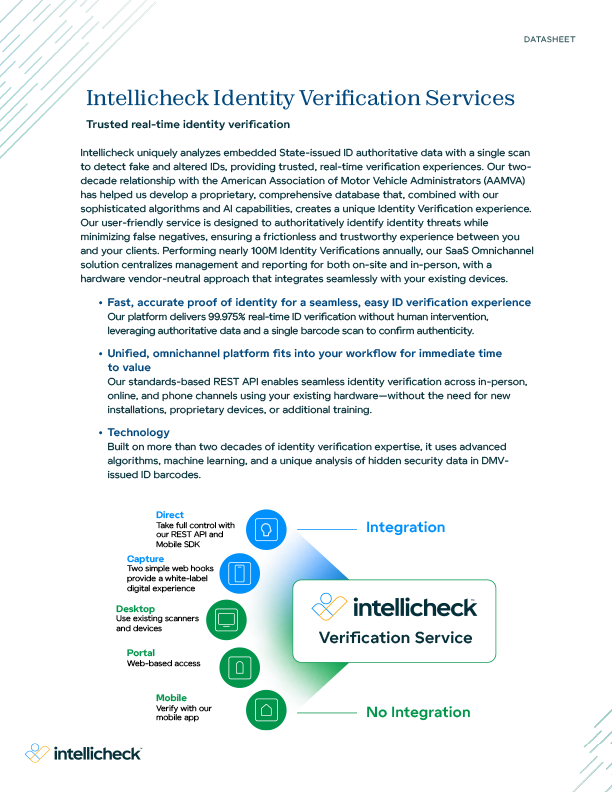Fraudsters have been using money laundering schemes to cover illegal activities for decades. In an effort to cut back the number of people taking advantage of the system, the government has imposed a set of rules and regulations called AML compliance.
Anti-Money Laundering Act (AML) first appeared in the U.S. to stop perpetrators from moving money to evade taxes and use it for notorious purposes. According to a report by the United Nations Department of Drugs and Crime, fraudsters manage to launder between $800 billion to $2 trillion internationally every year.
Failing to abide by the AML compliance regulations can cause banks to face harsh repercussions including hefty fines, loss of credibility and even potential jail time. Therefore, they need to keep themselves updated concerning the latest industry trends. So, if you are associated with a bank or a financial organization and need a refresh, here is everything you need to know about AML compliance.
What is AML Compliance?
According to Investopedia, Anti-money laundering (AML) is a set of laws and regulations put in place to prevent fraudsters from disguising illegally obtained funds as legitimate income. Though limited in terms of what is actually laid out in AML guidelines, AML is an umbrella under which many other sets of regulations exist. For example, the Bank Secrecy Act outlines a series of regulations financial institutions must comply with to avoid hefty fines.
AML Compliance for Financial Institutions
Financial institutions that fail to comply with BSA/AML compliance regulations can end up facing hefty fines that can cripple their business. Apart from that, it can also damage your market reputation and reduce your ability to combat money-laundering schemes in the future.
AML regulations are a global practice, and organizations have been fined in all parts of the world when found non-compliant. According to a report, the U.S. accounts for 91 percent of the total fines, with a value of up to $23.53 billion. Europe has imposed fines amounting to $1.7 billion, and the FCA, UK, imposed the majority of them.
Therefore, the only correct way to protect your business from major financial setbacks is to educate yourself concerning the necessary regulations and integrate new technology and practices into your point of sales or identity verification efforts.
Here’s everything you need to know:
United States BSA Requirement
The BSA, or Bank Secrecy Act, requires all financial institutions in the U.S. to assist government agencies with preventing and detecting money laundering schemes. More specifically, BSA requires financial institutions to maintain records of cash purchases for negotiable instruments. They must also file reports of cash transactions of an amount exceeding $10,000 (daily aggregate amount).
Financial institutions must also report any suspicious activity that may point toward tax evasion, money laundering, and other criminal activities. All banks and other financial institutions must fulfill certain requirements to be BSA certified including:
- Establish an effective monitoring system along with a customer due-diligence program
- Establish a competitive Suspicious Activity Monitoring and Reporting Process (SARs)
- Maintain Monetary Instruments Logs (MILs) to keep a record of cash purchases or transactions of monetary instruments with a total value of $3000 to $10,000
- Financial institutions must establish AML compliance programs, including the designation of a BSA officer, the development of internal controls, independent schedule audits, and on-going employee training programs
Banks that violate BSA provisions may face criminal fines of up to $1 million or twice the value of the transaction. Meanwhile, the employee responsible could face fines and possible jail time. Therefore, to make sure you abide by these complex rules and regulations, you should hire a BSA Officer.
Hire a BSA Officer
A BSA officer is responsible for making sure that all the operations of your financial institution are compliant with BSA certification guidelines, as stated in the Bank Secrecy Act. Some of the primary responsibilities of a BSA officer are:
- Implementation of a BSA compliance program
- Educate and train employees on BSA requirements
- Perform risk assessments and issue recommendations to executives
- Ensure AML certification documents are up to date.
Understanding AML KYC (Know Your Customer)
While AML refers to the umbrella that is anti-money laundering, KYC, or Know Your Customer, is a critical step in the process. KYC is the verification process of an individual’s identity before you start working with them. For financial institutions such as banks, credit unions, and insurance providers, KYC protects them and their customers from the back whip of illegal activities such as money laundering, corruption, terrorist financing and other fraudulent activities.
Here are some KYC compliance steps to help you protect your business:
- Establish a Customer Identification Program (CIP) by collecting necessary information such as their names, addresses, date-of-birth, etc.
- Obtain information about the nature of the customer’s business to understand their professional goals with your institution.
- Establish the beneficial ownership of companies/corporations
- Perform Risk Assessments to compare the information collected to lists of individuals that are known for corruption, sanctions, criminal activities, bribery, suspicion of money laundering, etc.
- Set up an identity verification system with the most effective and convenient solution for banks and financial institutions, Intellicheck.
Catch Fraud Early with Intellicheck
One of the best ways to protect your business from fraud and money laundering schemes is to invest in ID authentication platforms with the highest accuracy possible to support your AML compliance efforts.
While other ID scanning solutions are designed to display information on your POS system, Intellicheck can authenticate IDs with 99% accuracy. It informs you from the start whether or not you should even bother funneling someone through your AML compliance procedures. This can save your team tons of time and resources by catching fraudsters in the act in real time. In fact, Intellicheck’s authentication suite can verify an ID in just a matter of seconds with greater accuracy than any other solution out there.
Protect Your Business
Understanding the basics of AML compliance is only the first step towards protecting your business. It is your responsibility to ensure that you deploy foolproof fraud prevention technology to stay AML and BSA compliant. That’s why a sophisticated ID authentication software, such as Intellicheck, can help you catch fraudsters early on, saving you money in the long run.
Failing to catch money-laundering schemes can result in hefty fines, which can cripple smaller banks and cause irreparable damage to larger financial institutions, both in money and reputation.
With Intellicheck’s highly accurate authentication platform, you can cut back the risk of missing a fraudster in the onboarding process. Intellicheck is the industry leader in ID checking solutions and is even utilized by U.S. government institutions to authenticate IDs.


%20copy.webp)

.avif)




